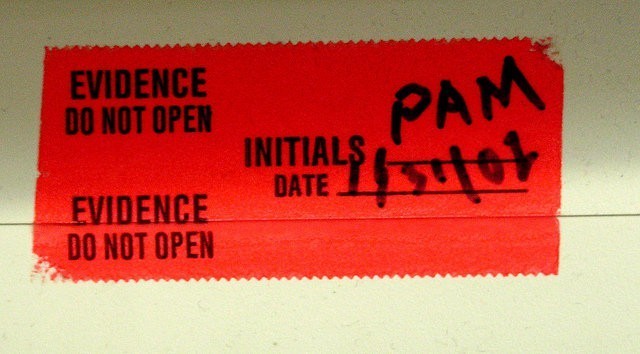
Sex Crime Investigations: Evidence Collection Protocol in Texas
In Texas, sex crimes are investigated by collecting evidence. The police will attempt to find evidence to corroborate the claims of the alleged victim. As part of this effort, they will collect many different kinds of evidence. From witness statements to DNA samples, they will be thorough in their investigation. The type and amount of evidence that the police recover can have a huge impact on the outcome of a trial.
Types of Evidence
There are several different categories of evidence that police collect when investigating a sexual assault. They can include:
- Physical Evidence
- Medical Evidence
- Statements
Physical Evidence
Physical evidence is often the first thing that the police look for in a rape investigation. This is a broad category that can include many different kinds of evidence. Some common examples include:
- Signs of a struggle (forced entry, overturned furniture, etc)
- Signs of violence (blood, broken glass, weapons, etc)
- Signs of victim injury (bruising, bleeding, broken bones)
- Potential DNA (hair, blood, condoms)
Any of these kinds of evidence can be collected by the police for further analysis. In most cases, these types of evidence can be used to corroborate the statements of the alleged victim. They can also be used to attack the defendant’s case. For example, if the defendant states that he or she doesn’t know the alleged victim, the presence of the defendant’s DNA in the alleged victim’s house could damage the defense’s case.
Medical Evidence
In some cases, people who claim that they are victims of sex crimes will be examined by a doctor or nurse. They will be tested with an examination device known as a rape kit. During the examination, the medical professional will check for:
- Signs of forcible sexual activity
- Signs of injury (bruising, bleeding, broken bones)
- Signs of DNA (hair, sexual fluids, or skin cells of another person on the victim’s body)
- Toxicology (presence of alcohol or drugs)
The purpose of the medical examination is to determine if the alleged victim was actually assaulted and, if so, to attempt to identify the person who committed the assault.
Statements
The police routinely collect statements from the alleged victim, the defendant and any witnesses. While an accusation from an alleged victim is not enough for a criminal conviction, the statement can be checked against other evidence to build a case. For example, if the defendant claims that he or she never had sex with the alleged victim but his or her DNA is found on the alleged victim’s body, the defense’s case could suffer.
A Lack of Evidence
Sexual assaults are unique in the legal system because they can sometimes be difficult to prosecute. While crimes like robbery or murder can leave substantial evidence, sex crimes may not leave much evidence at all. For example, if an alleged victim takes a shower, washes their clothes and cleans up their house before reporting the incident, evidence may be lost.
DNA evidence can be cleared away by taking a shower, going to the bathroom or washing clothes. If this occurs, the lack of evidence may make prosecution difficult.
In other cases, alleged rape victims may wait days or weeks before making a police report. They may have been under the influence of alcohol or drugs, making their memories of the event blurred and unreliable. Any of these factors can make the prosecution’s case much more difficult to prove.
Defending Against Sexual Assault Charges
In rape cases, the defense can use evidence to attempt to prove the defendant’s innocence. They may also point to the fact that the prosecution has little or no evidence that is sufficient to make a conviction.
In these cases, the burden of proof may be greater for the prosecution for the defense. For example, if the prosecution submits evidence showing that:
- The defendant and alleged victim engaged in sex
- The defendant and alleged victim tested positive for alcohol
- The defendant has been arrested for getting into fights
The defense could counter this evidence by stating that they are not sufficient proof. For example, the defense could claim that the sex was consensual and that many people drink alcohol before engaging in consensual sex. They could also claim that a history of fighting is irrelevant because many people who get into fights never commit sex crimes.
The key to building a strong defense against sex crime charges is to hire a good defense attorney. It’s important to start building a strong defense as soon as charges are filed.
If you’ve been accused of a sex crime, it’s crucial to contact an experienced attorney. Brett A. Podolsky will fight to protect your rights. Call 713-227-0087 or email for a confidential consultation today!